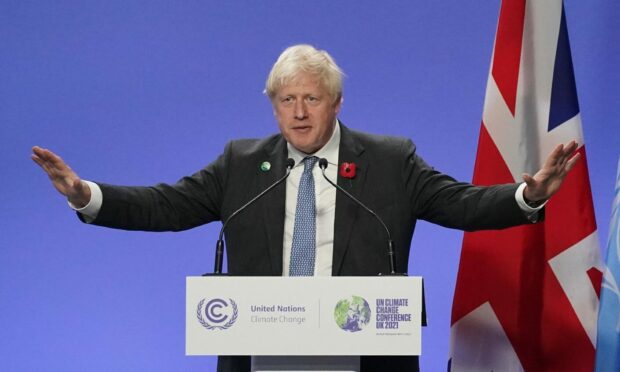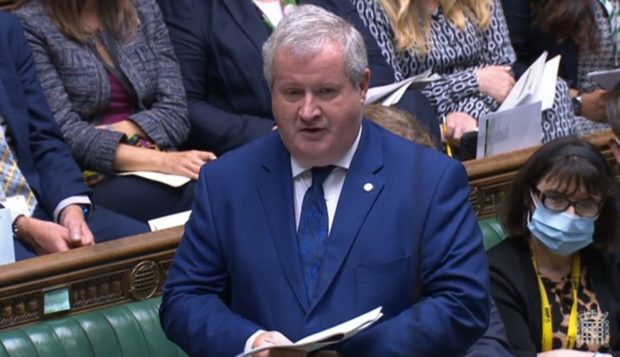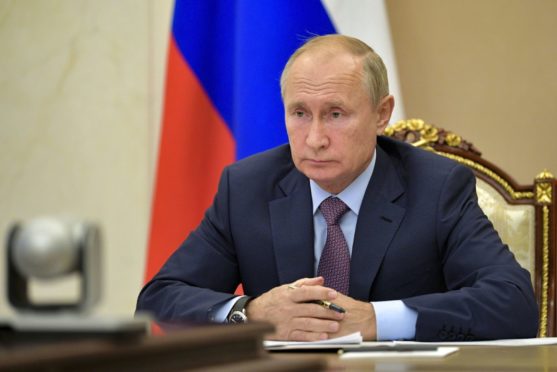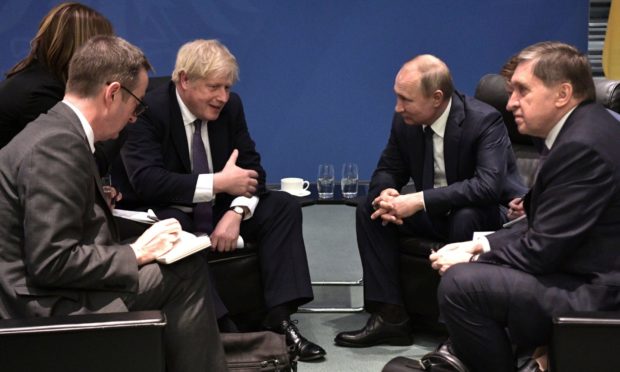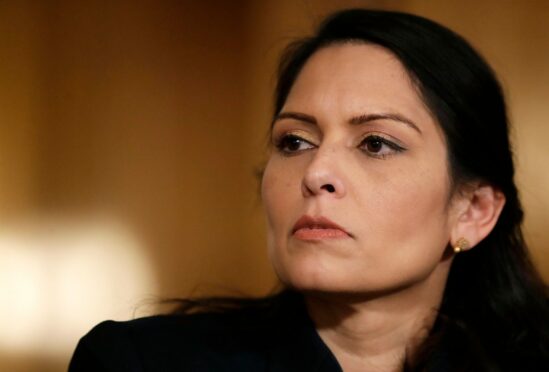Russia’s plan to invade Ukraine could lead to the largest conflict in Europe since the Second World War, the prime minister has warned.
Boris Johnson said he wants people to “understand the sheer cost in human life” that an incursion into the country would bring, as he continued to urge Moscow to engage in peace talks.
SNP Westminster leader Ian Blackford said there is a responsibility on people across the Western world to deliver a “very clear message” that time has not run out on diplomacy.
“The pressure needs to be turned up and my message, along with everyone else thing morning, to President Putin, is to draw back,” Mr Blackford said.
“No one wants to see the bloodshed, the horror, that could be unleashed on the people of Ukraine, who we all must stand with.”
‘Putin won’t stop at Ukraine’
Foreign Secretary Liz Truss warned Russian President Vladimir Putin “will not stop at Ukraine” as she argued he is looking to piece the Soviet Union back together.
The comments came as Ukraine’s military said two soldiers died on Saturday as violence escalated in the east of the country between government forces and rebels.
There are growing fears Russia could use the increase in tensions in the separatist-held region as a pretext for an attack.
Boris Johnson spent Saturday engaged in diplomatic efforts to avoid war as he warned the Kremlin during a speech at the Munich Security Conference of increased financial sanctions if Mr Putin orders troops across the border.
He also told broadcasters he believes Russia’s invasion plan is “in motion”, with the aggression in the Donbas region potentially a “prelude to bigger action”.
‘The biggest war in Europe since 1945’
Mr Johnson warned the type of the offensive being prepared by Moscow has not been seen for almost 80 years.
He told BBC News: “The plan that we’re seeing is for something that could be the biggest war in Europe since 1945 just in terms of sheer scale.
“You’re looking at not just an invasion through the east through the Donbas, but according to the intelligence we are seeing, coming down from the north, down from Belarus and actually encircling Kyiv itself, as Joe Biden explained to a lot of us last night.
“I think a lot of people need to understand the sheer cost in human life that that could entail, not just for Ukrainians but for Russians.”
Asked whether a Russian invasion was still thought to be imminent, Mr Johnson said: “I’m afraid that that is what the evidence points to. There’s no burnishing it.”
Liz Truss said the West must “stop” Moscow in its tracks or else Mr Putin would look to “turn the clock back to the mid-1990s or even before then”.
She said he could look to annex the Baltic States – such as Estonia and Latvia – and the Western Balkans, which includes Serbia and Albania.
Not just a foreign quarrel for UK
Home Secretary Priti Patel warned a conflict between Moscow and Kyiv would “not just be a foreign quarrel about which we know little”.
The Cabinet minister said the “effects would be felt here too” given the UK has previously experienced Russian cyber “interference” against its media, telecommunications and energy infrastructure.
Boris Johnson held talks with a number of European leaders while in Bavaria, including Ukrainian president Volodymyr Zelenskyy.
During his speech to the annual summit, Mr Zelenskyy was critical of what he called “appeasement” by the West in the face of Russian aggression.
“We have the right to demand to move from the appeasement policy to ensuring the guarantees of security,” he said, in a translation offered by the conference.
Mr Zelenskyy also questioned why western leaders were waiting for Russia to invade before applying sanctions, given 150,000 of Moscow’s troops are amassed on his country’s border.
